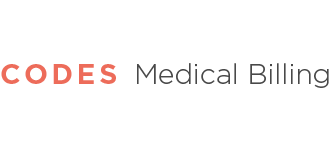IMPORTANT CONSIDERATIONS
Be sure to consider these things during your
search for a medical billing solution.
Ability
Of course all billing services say they will maximize revenues, but how can you be sure they can actually do it? It’s simple—ask the company to support their claims. Codes Medical Billing maintains an average collection rate of 93% and can support that claim with documented proof.
Stability
Look at the entire spectrum and everything in between. Are you dealing with a “mom and pop” shop and the associated risks? Are you better suited by the opposite end of the spectrum? Is the company subject to the whims of venture capitalists and investors? Are they profitable? Are they going to be around to serve you in the long term? No answer is right or wrong, but they need to be compared to your expectations and desires.
Systems
While the ability to maximize revenue is most important, you should also choose a company that provides you with a practice management system that comfortably suits your needs. These include appointment scheduling, data transfer, patient tracking, and reporting. A good system should be highly accessible, user-friendly, and have extremely high-level functionality.
Electronic Health Records
You may also want to make sure that the system provided can seamlessly work hand-in-hand with Electronic Health Records (EHR) systems both now and in the future. Therefore, one recipe for success is to find the best reimbursement solution for your practice, then find the best EHR for your practice—and make sure they work well together. Learn More.
Structure
The internal structure of the organization should be conducive to both maximizing reimbursement and to customer service. Determine if they use billing “assembly lines”, or if they have a one-on-one or small team approach. Make sure the company structure makes sense to you and meets your expectations.
Experience
It is important to note not only the experience of the company, but also the experience levels of the actual specialists, supervisors, and managers who will work on your account.
Service
There is not a salesperson in the world who won’t tell you that the company they represent has the best customer service. So dig deeper. Ask about policies. Speak to references. Most importantly, make sure the structure of the company does not hinder your access to the specialists who actually perform work on your behalf.
Transparency
Make sure that data regarding billing is available to you at all times. That means charge data, payments, outstanding claims, user notes and follow-up detail should only be a few clicks away. This level of transparency ensures that you can audit your billing service and maintain complete control over your practice.
Patient Relations
Different billing companies treat patient billing and calls in different ways. Check into the procedures and tactics used to collect payment from your valued patients. They should not only be effective, but should also reflect the manner in which you want your patients treated.
Overseas Considerations
Many billing companies have their back office (actual billing) performed overseas. Are you comfortable that your future earnings are directly controlled by overseas billers? There is no right or wrong answer, but just make certain that what is offered is consistent with your expectations.
Workflow Changes
Ask yourself if your practice is going to have to completely change the way you function just to accommodate your billing service, or if they are willing to work with the way you operate. A billing company should have options which integrate seamlessly with your practice’s processes and not require significant change or realignment.
Cost
What is the overall cost? Look at the details. What is included and what is buried in the fine print? Are things like software, training and postage included? Are there startup fees or any hidden costs? Do fees seem exorbitant or perhaps even too good to be true? What good is it if you pay a billing service 2% less, but they collect 20% less revenue?

